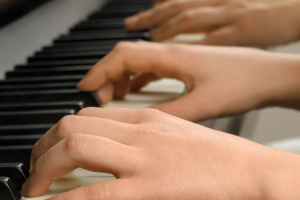How to Find a Good Piano Teacher
How do I know which teacher is right for me or my child?

There are a lot of piano teachers out there. Finding the right one for you or your child can take time, but it is worth the effort. You will be investing a lot of time and money, and the results you get can vary widely, depending on the teacher you choose.
“Better than a thousand days of diligent study is one day with a great teacher.” - Japanese proverb
Things to Consider
Think about your goals
Start by thinking about what you want your child (or yourself) to achieve out of lessons. Do you want to be able to play all styles of music, or are you more interested in some styles than others? Do you want to do exams? Do you have specific goals in mind, such as playing for friends, at church, professionally, in a band? Do you want to learn to improvise or play by ear? Are you interested in the theory and historical background of music as well? You should discuss these goals with your potential teacher.
I'm only a beginner - does it make a difference?
A common mistake is to think that anyone can teach a beginner, and it only matters later on. How wrong! The beginning of learning piano is when you learn all your habits – how to read fluently (there are good ways and bad ways!), how to listen, how to use the right technique. A poor teacher can teach a lot of bad habits that will have to be fixed later, or worse, lead the student to self-doubt, frustration and maybe even giving-up.
Learning materials and resources
There are many new methods and resources for learning piano, and many old ones still in use. You should ask the teacher which materials they use, when they were published, and why they chose them. Sadly, many teachers are still using materials published in the 1930’s, which fail to take advantage of current research about effective teaching methods.
What qualifications should a piano teacher have?
Your teacher should have good performance and theory qualifications, but also some educational qualifications, specifically in teaching music to individuals. Just because someone can play, doesn’t mean they can teach well! It’s best to look for an accredited teacher. Usually accreditation is governed by the each state’s professional association of music teachers. If you are looking for a teacher for a child, you should also ask if they have a current Working With Children Check.
What about exams?
Exams can be helpful or unhelpful. You should be wary of any teacher who pushes exams, as exams are not the only way to learn piano. Some exam syllabuses focus only on classical repertoire and technique, and ignore other useful piano skills such as improvisation and playing by ear. Ask the teacher what they think about exams, and whether all their students do them.
What about adult students?
Adults learn differently to children. Ask your teacher how many other adult students they teach, and if they use different methods for adults. And make sure they understand that adults have different priorities too, and can’t always practise as often as children can. There is more about learning piano as an adult here.
How does the financial side work?
A good teacher should have a clear studio policy with details about fees, term dates and cancellation policies. The Music Teachers’ Association of NSW publishes standard rates for music teachers. A clear studio policy is usually a sign of a high-demand teacher with a strong sense of professionalism, which will be an advantage to you as a student. You should be aware that most piano teachers will not refund missed lessons, and many will not reschedule them.
Where can I find out more?
The best place to start is the Music Teachers Association in your state. If you are in New South Wales, start with The Music Teachers’ Association of NSW. There are also Music Teachers Associations in the other Australian states.

